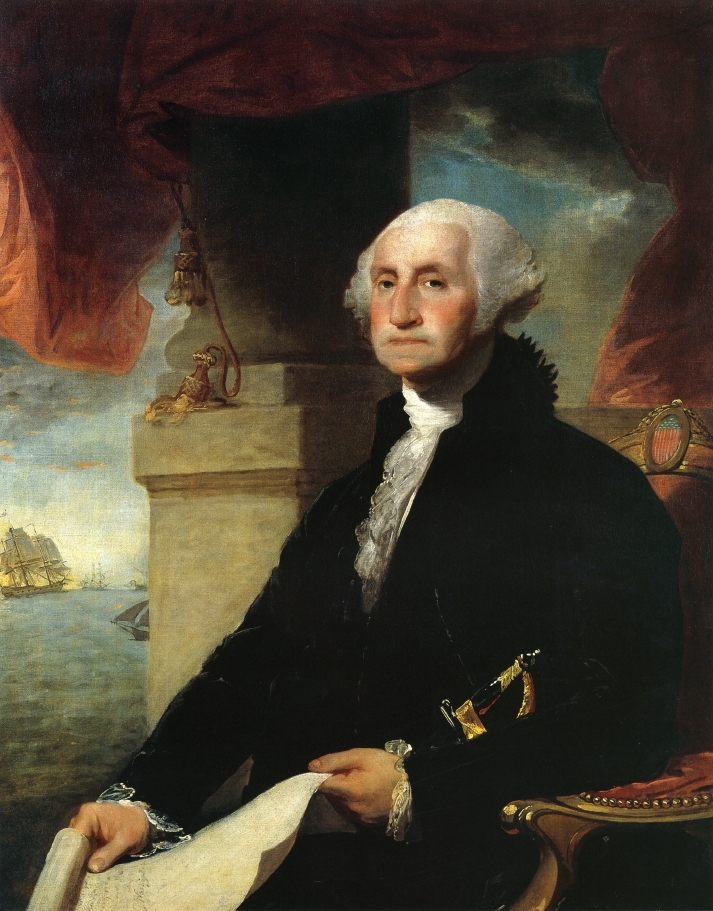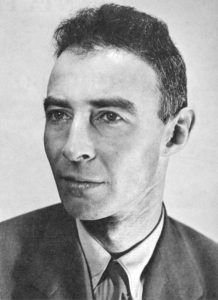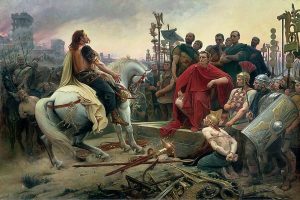“I feel my self going. I thank you for your attention. You had better not take any more trouble about me; but let me go off quietly; I cannot last long.”1 These were George Washington’s dying words. Who could have imagined that this great Revolutionary War hero and first President could fall two years after his retirement? He seemed to be immortal in the public’s eyes. Staying in the spotlight for nearly twenty five years, standing as the symbol of American nationhood, he not only had stood as a symbol of America, but he had also commanded the armies that helped gain national independence. After all the wars, he never appeared fazed, never showed any type of weakness or vulnerability, until that frigid winter of 1799.2
The century was nearly over, and the future of the young nation seemed bright. The former commander-in-chief of the nation had retired to his estate of Mount Vernon and had set out on horseback to check on certain areas of his plantation. It was December 12, 1799.3 He was exposed to cold rain and snow, but that did not stop this man from carrying out his responsibilities. However, sometimes carrying out responsibilities can have serious consequences. The next day he woke early in the morning, having difficulty breathing. Later in the morning he started to developed pain in the throat, and this led him to be unable to swallow or speak well. He grasped for some air, constantly tossing and turning to find a comfortable position.4 Lying down in agony, he was surrounded by three physicians who were all at a loss as to what to do.
James Craik, Gustavus Richard Brown, and Elisha Cullen Dick were the attending physicians for Washington, and all knew him very well.5 The first to arrive was Dr. Craik on Friday, December 13, when Washington started first experiencing a cold with a light hoarseness. By 2 a.m. the next morning, he awoke with troubled breathing. At 6 a.m. he was showing signs of a fever with throat pain and respiratory suffering.6 Washington was unable to swallow and even had difficulty speaking. Dr. Craik believed that the only option for Washington was for a bloodletting.
Bloodletting is the surgical removal of blood from a patient, and it was a typical procedure physicians used in the eighteenth century. Typically, the physicians were not the ones that would carry out the bloodletting; they would call in a skilled bloodletter. In this case, the bloodletter was George Rawlins. At 7:30 a.m., Rawlins removed about 12 to 14 ounces of Washington’s blood. Washington actually requested an additional bloodletting. Two hours later, Dr. Craik applied a blister of cantharides to Washington’s throat and removed roughly 18 more ounces of blood. This was also done at 11 a.m.7 Washington was still alert at this time. He even had the strength to stand up and walk to the bathroom, but he still had trouble swallowing tea, nearly suffocating from the attempt and unable to cough up the fluid.
There was an argument among the physicians caring for Washington, whether there should be a fourth bloodletting. Dr. Elisha Cullen Dick believed that more bloodletting would make Washington’s condition worse. Nevertheless, Dr. Craik ordered for the bloodletting at 3 p.m.8 After the fourth bloodletting, Washington seemed to show improvement; he was able to swallow. With renewed strength, Washington was able to revise his will. He knew his time was coming to an end. As the night continued, his condition steadily worsened. The physicians tried their best to keep him stable by applying blisters of cantharides to his arms, legs, and feet. They even applied wheat-bran cataplasms to his throat.9 This did stop his condition from worsening.

At 10 p.m., Washington whispered his burial instructions to his aide. Twenty minutes later, George Washington died. The news of his death spread rapidly across the country. The grieving was not only at his at burial site, but across the Atlantic. There was a London newspaper that eulogized: “His fame, bounded by no country, will be confined to no age.”10 Units of the British fleet that was blockading a harbor in France dropped their ensigns to half-mast. Napoleon ordered a ten-day requiem.11 In the United States, newspapers would publish poems from grieving women. People traveled to Mount Vernon to pay their respects. Citizens dressed in black clothing for months.12
December 26 was the official day of mourning. At dawn, there were sixteen cannons that were fired, and they continued to boom every half hour until 11 a.m. After the firing of the cannons, there was a march of troops to the Lutheran Church where Henry Lee gave a memorial of Washington that became immortal: “First in war, first in peace and first in the hearts of his countrymen, he was second to none in the humble endearing scenes of private life…The purity of his private character gave effulgence to his public virtues.”13 To pay tribute to the first president, Congress voted to construct a marble monument in the Capital building, which was still under construction in Washington, D.C. at the time. This was an appropriate tribute to a great man, and he will forever be immortal in our nation’s history.
- Salem Press Encyclopedia, January 2016, s.v. “George Washington’s Death.” ↵
- Salem Press Encyclopedia, January 2015, s.v. “George Washington,” by David Curtis Skaggs. ↵
- Salem Press Encyclopedia, January 2016, s.v. “George Washington’s Death.” ↵
- David M. Morens, “Death of a President,” New England Journal of Medicine, vol. 341, (December 1999): 1845. ↵
- David M. Morens, “Death of a President,” New England Journal of Medicine, vol. 341, (December 1999): 1845-1849. ↵
- David M. Morens, “Death of a President,” New England Journal of Medicine, vol. 341, (December 1999): 1845. ↵
- David M. Morens, “Death of a President,” New England Journal of Medicine, vol. 341, (December 1999): 1845. ↵
- David M. Morens, “Death of a President,” New England Journal of Medicine, vol. 341, (December 1999): 1845. ↵
- David M. Morens, “Death of a President,” New England Journal of Medicine, vol. 341, (December 1999): 1846. ↵
- Salem Press Encyclopedia, January 2016, s.v. “George Washington’s Death.” ↵
- Salem Press Encyclopedia, January 2016, s.v. “George Washington’s Death.” ↵
- David M. Morens, “Death of a President,” New England Journal of Medicine, vol. 341, (December 1999): 1846. ↵
- Salem Press Encyclopedia, January 2016, s.v. “George Washington’s Death.” ↵



73 comments
Christopher King
This article is great because for me it is about one of the most selfless men that this country has ever had and with honor. George Washington thought about others before himself and that is what led to him getting sick. Even when he is sick he continues to try not to burden anyone. No other leader with the ability to have so much power in history has ever turned it away. George Washington is the only one to turn down so much power and live such a simple life. This article shows how great of a man and how much of a man of the people he truly was.
Kimberly Simmons
George Washington died far before his time. The opening quote was fantastic! It truly set the stage for the rest of the article. His life was not only impactful, but so was his death. It’s unfortunate that the sickness overtook him, yet so inspiring that he still managed to fulfill his duties as President. A very well thought out article, and very detailed.
Kailan Pena
Such a great way to start a great article, I really enjoyed that quote. I never really thought about how George Washington died before and I’ve heard nothing about when or where or even how it happened so this article was very informative and interesting. It’s very tragic how our first president died and knew and accepted it before it happened, but it was nice to learn about.
Thomas Fraire
Thats crazy how you found he legit dying words to start the article. Its sad he knew that he was at the point of death and the whole concept of bloodletting is awful. After reading this article I had like this awful feeling in my stomach his death seemed slow and draining. But this article was really well researched and enjoyed the tragic story told.
Osman Rodriguez
Great quote to start off the article. I was immediately put in a state of sadness reading those words which George Washington spoke. Knowing you don’t have much time must be a terrible feeling. To me it is sad to read about such an pivotal/ important person as he, who led the colonies to become what would be the United States of America. To see where we are now because of the efforts of such men like him.
Maria Callejas
AMAZING INTRODUCTION! That first sentence, using Washington’s last words, incredible mood setter. This was indeed a great article, and again, a learning experience for me. I am sure very few know the cause of death of the United States’ first president, so very good topic choice. It is important to highlight how primitive medicine was in the 18th century because it seems like those “bloodletting” contributed to Washington’s death. Great conclusion; indeed what a great man he was to this country, his legacy will forever live on.
Amber Aragon Alvarado
It was interesting reading about such an heroic individual’s death in detail. It fascinated me how the British even paid their respects. Although George Washington died in a very painful manner, he’ll never be forgotten. Not only because he was our first president but also because he demonstrated bravery for the country we live in today. I have never heard of bloodletting. The bloodletting process sounded very painful. Having to release more than 14 oz. of blood from Washington’s throat made me feel really uneasy. I had no idea that occurred. The article contained great information.
Ernie Sano
Death seems to be one of the few aspects of life that is certain. Living gives us a sense of eternity that cannot comprehend the idea of death. Consciousness gives us a sense of self that allows us to experience life, and a lack of it is what I imagine to be what death is. Washington, and anybody else that is no longer living, knows the true answer to what happens in death, and I believe that our lack of knowledge is what makes it sad. We cannot know that one will ever see the other again. This article gives a great example of what death really means to humanity.
Sebastian Castro Ramos
George Washington was a key figure on the the United States’ history, and the respect this nation holds for him because of this is reflected on this article, because of the mourn and respect of the people described on the article and because still today people like you still remember him and write about him. He will be forever be part of this nation’s history. Excellent article, it was very interesting and informative.
Michael Mandujano
This article beings with a powerful introduction, since it consists of our first President George Washington’s last words before death. I enjoy how the author goes into depth on Washington’s death bed. I also enjoyed the illustrations that were presented throughout this article. Overall, this article was very interesting to read, I was unaware on how the death of George Washington occurred, so after reading this article it gave me a better understanding.